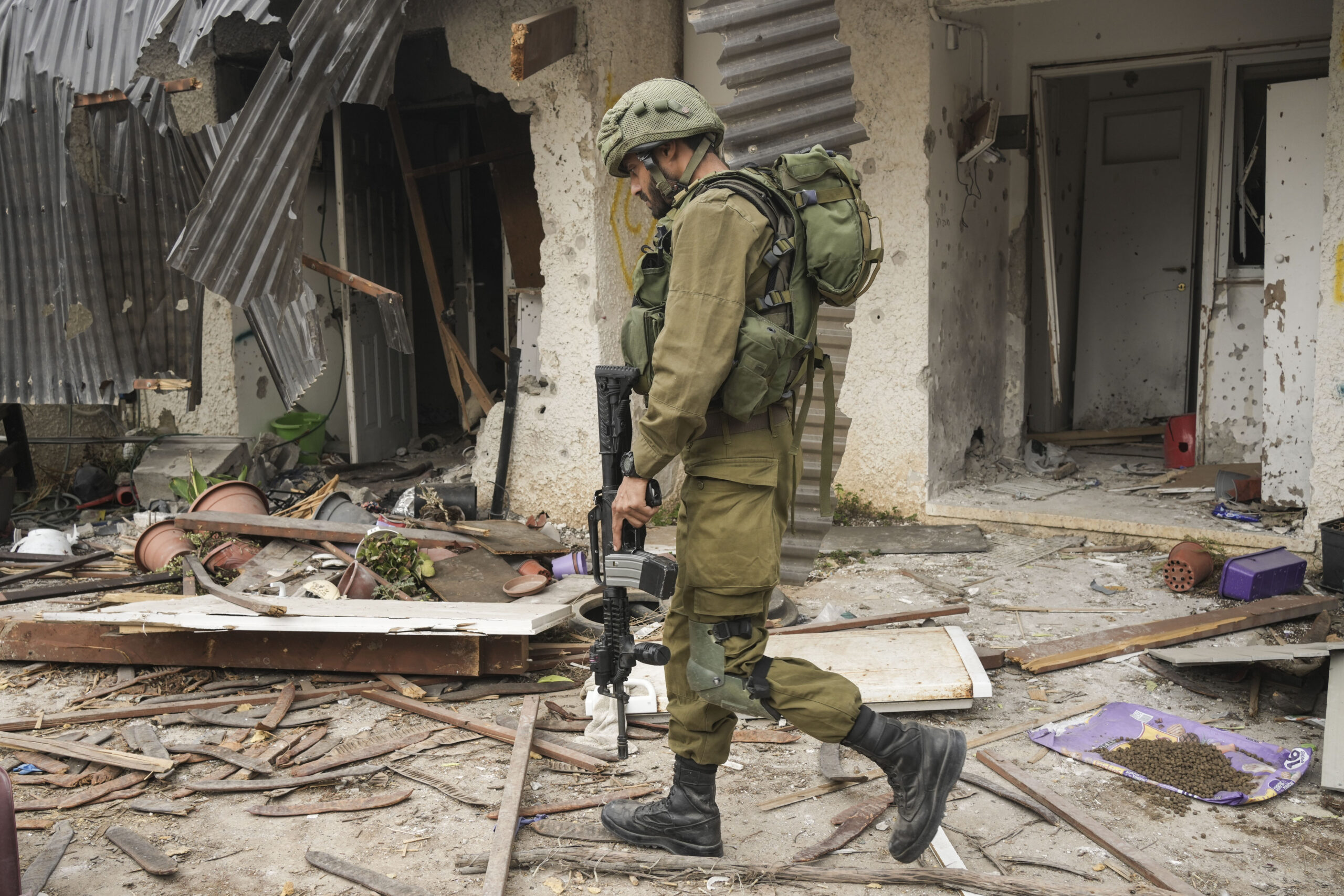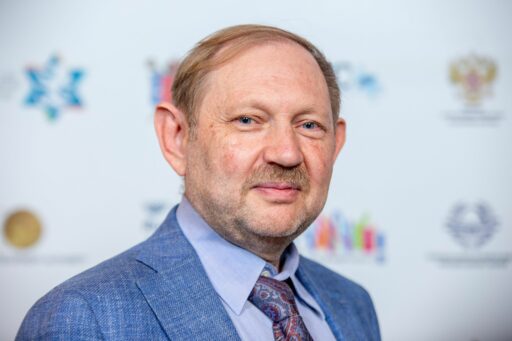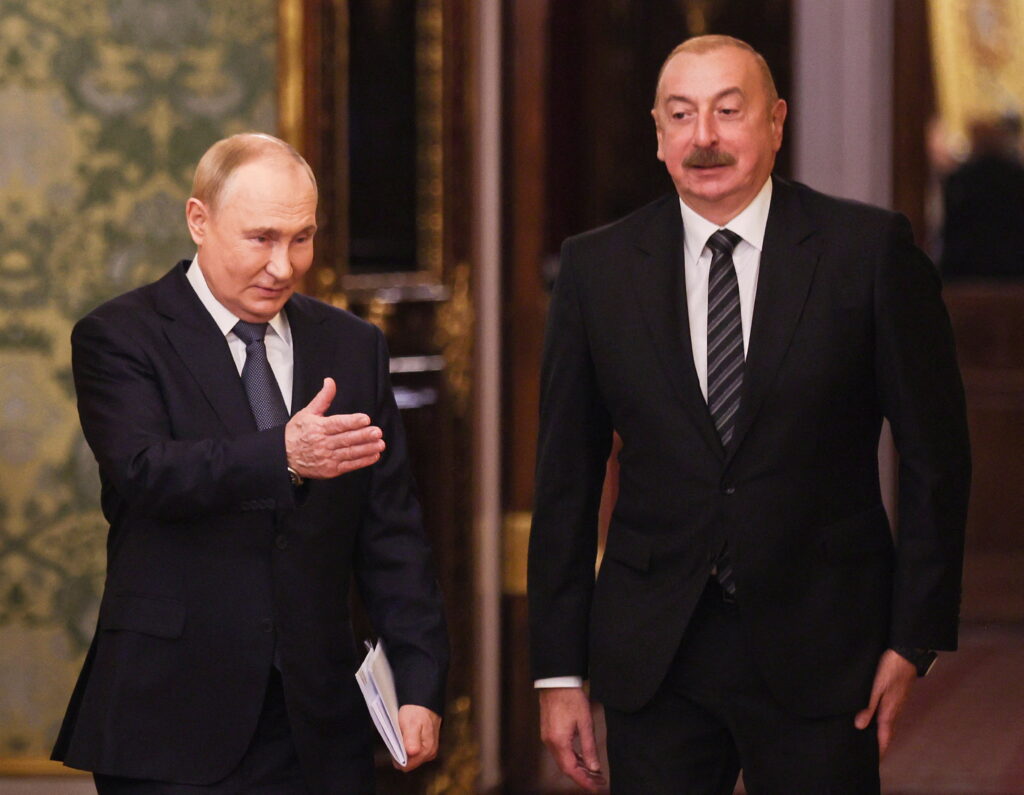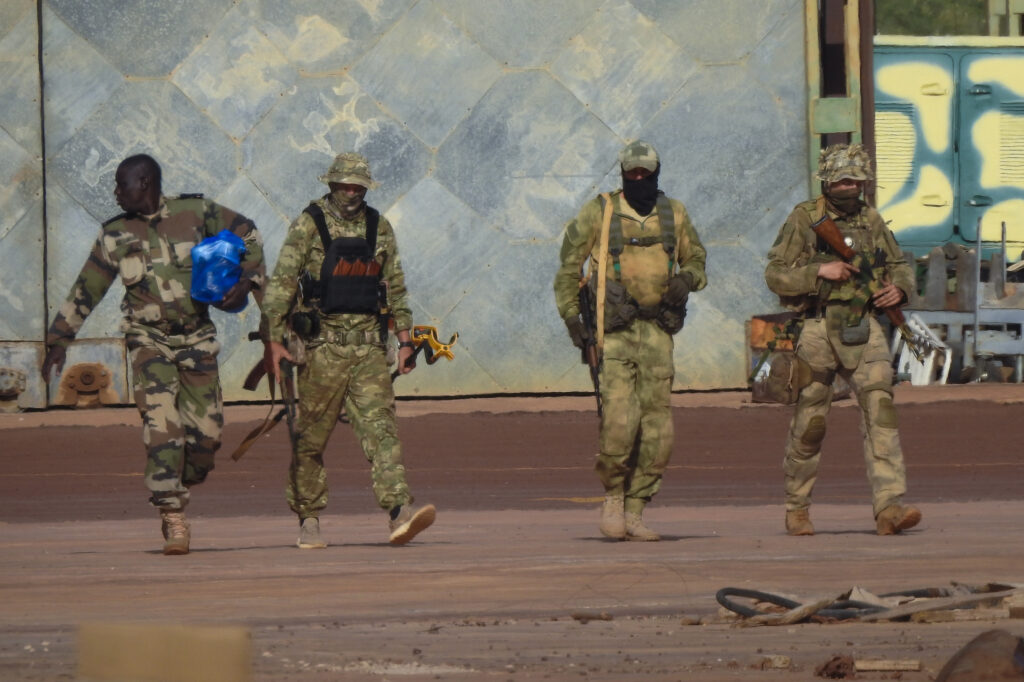The new war in the Middle East began on the morning of 7 October 2023, the day militants from the Islamist terrorist group Hamas, which has controlled the Gaza Strip since 2007, stormed into Israeli border settlements and thousands of rockets rained down on cities and towns in southern and central Israel. The sheer intensity and depth of the response by the Israel Defence Forces (IDF) was unprecedented.
It is now clear to Israelis that the previous approach of Israeli governments to «managing the crisis in Gaza without managing the Strip itself» is no longer relevant. What is now being discussed is the complete dismantling of the radical Islamic fundamentalist regime. If this is the goal of the current IDF operation, it will require not only air and naval strikes against the terrorists, as is the case today, but also a massive ground invasion to wipe out the powerful, multi-layered military infrastructure inside the Gaza Strip. Meanwhile, Israeli society, media and, of course, professional and political circles are engaged in a vigorous discussion that is not limited to the questions of appropriate military tactics, but also touches upon various legal, diplomatic, humanitarian, international, geopolitical and other possible consequences of such a step.
The Russian factor
Among other things, the issue of «Russia’s footprint» is actively debated — from the quite explicit moral and diplomatic support of Hamas by official Moscow and the anti-Israeli statements of Russian propagandists, to speculation about direct deliveries of Russian-made weapons to Hamas and the participation of former «Wagner» mercenaries in the 7 October attack on the border settlements.
In addition, there is much discussion of the fact that the brutal invasion of Israeli border settlements by a trained and well-armed brigade of Hamas special forces requires a level of preparation and planning that exceeds the qualifications and capabilities of the command of the group’s military wing. This function appears to have been performed by Iranian «advisers», but there are also indications of the involvement of several military experts that hail from a «strong northern country». There are also suspicions that the Russian Federation has secretly transferred weapons seized in Ukraine to Hamas.
However, there is no reliable confirmation of this speculation. What is certain is that this war can bring Russia certain geopolitical and diplomatic dividends. There are at least four such dividends. First of all, the war in Gaza will slow down the process of normalisation of Israel’s relations with Saudi Arabia, which would have otherwise marked the actual end of more than a century of Arab-Israeli conflict. This will reinstate the «Palestinian problem» to its former role as an ultimatum factor in the regulation of the Middle East. Such a development would be in Russia’s interest.
Second, the current war in the Middle East calls into question the formalisation of the defensive alliance between Israel, the United States and the Saudi bloc countries, which Moscow sees as a fundamental challenge to the interests of Russia, Iran and China in the region. Third, Russia has been harboring a (so far unfounded) hope that a new hotspot on the world map will refocus the interests, attention and resources of the US and the «collective West» on Israel’s fight against Iranian satellites — Hezbollah, Hamas and the Assad regime in Syria — and accordingly reduce attention to Ukraine and the sphere of Russian-Iranian interests in the South Caucasus. Finally, Moscow is clearly trying to capitalize on the «failure of US diplomacy» and Washington’s alleged exclusion of other actors capable of offering creative options from the dialogue on the settlement of the Palestinian problem.
So far, however, Moscow has failed to offer any new ideas on the issue other than those that have already been tried and found wanting. The Russian foreign minister, Sergei Lavrov, has issued the usual statements about «the impossibility of postponing the solution of the Palestinian question in the spirit of the UN resolutions» and the promotion of steps «to create a Palestinian state that (…) will live side by side with Israel, providing each other with security and good neighborly relations».
Nevertheless, the question of what will happen to Gaza once the radical Islamist regime there is removed is by no means an irrelevant one. All the more so because the further the United States and Israel’s European allies go, the more insistently they invite Jerusalem to present its vision of Gaza’s future.
The next day
The old concept of «managing the crisis in Gaza without managing the Strip itself», and even more so the idea of legalising Hamas as a full participant in the diplomatic process without imposing any «preconditions» (recognition of Israel and all previous Israeli-Palestinian agreements, and renunciation of terrorist activities), once popular in ultra-left circles but long out of demand on the local political market, have become completely irrelevant. What remains are ideas that differ little from the scenarios that have circulated in public discourse over the past few years.
The first is that once the IDF’s military operation to physically dismantle all the terrorist organisations operating in the Strip, and to destroy the conditions for their re-establishment in the future is completed, Israel should re-establish long-term military control and direct administration over Gaza. The proponents of this scenario, previously unacceptable to the vast majority of Israelis but now being discussed along with other ideas, are aware of its possible diplomatic consequences. That is why they consider it desirable to obtain the official consent of the US, the EU and the «moderate Arab regimes», which could, as an option, share responsibility with Israel for certain areas or spheres of life in Gaza. But even if this scenario fails, its positive impact on Israel’s economy and security will far outweigh the diplomatic costs of implementing this plan.
The second scenario — «cleanse [the Hamas] and withdraw» — involves, as in the first case, the forceful destruction of the military and «civilian» infrastructure of local terrorist networks in Gaza. According to this scenario, Israel should not formally reoccupy Gaza, but hand it over to a «responsible external force» after completing the necessary anti-terrorist measures, perhaps also leaving a demilitarised buffer of about 130 square kilometres under IDF control, as suggested, for example, by the former commander of Israel’s ground forces, Major General Guy Zur. Opinions differ as to who this external force can be. The first option is the return of Gaza under the control of the Palestinian National Authority (PNA) in Ramallah, headed by Mahmoud Abbas (Abu Mazen), which was expelled by Hamas in 2007. Indeed, unlike radical Islamists, who are not ready to recognize Israel’s right to exist within any borders whatsoever, the leaders of the «secular Palestinian nationalists» from Fatah/PLO 30 years ago accepted the idea of territorial compromise with Israel and renunciation of terror (at least in their official parlance) 30 years ago, after the signing of the Oslo Accords in 1993.
However, today Abu-Mazen’s team is the least suitable candidate for the role of «effective administrator» of Gaza. It is not only because the inhabitants of the Arab-speaking enclaves of Judea and Samaria (or, to use the international term, of the «West Bank of the Jordan River») living under the conditional control of the PNA and their de facto leaders do not support the two-state solution to the Palestinian-Israeli conflict and neither do Gazans. And not only because it is not in Israel’s interest to give Ramallah the opportunity to gain Gaza without incurring any costs and, at the same time, to launch another round of the campaign to delegitimise Israel. The problem is also that such a move is unlikely to yield any practical benefits. Restoring real control over Gaza would require Abu Mazen’s administrative and power resources, which he does not possess and will hardly receive from anyone, unless he accepts the Israeli scheme of settling the Palestinian-Israeli conflict as a whole (i.e., joining the project of normalising Israel’s relations with moderate Arab regimes within the framework of the «Abraham Accords»). However, Yasser Arafat’s political heirs do not have the political will for this today.
Even if they somehow manage to «return the PLO to Gaza» under the slogan of «restoring Palestinian unity» and equip the PNA with the necessary tools, there is no guarantee that control over them will not soon enough end up in the hands of another reincarnation of Hamas under the very same or different name. In such a case, the maximum that Ramallah can do is to act as a fig leaf over the mechanism of control and governance that will be exercised by other external forces, which are yet to be found.
The Egyptian option, «Palestinian Kadyrov» and other scenarios
The second natural candidate for the role of «responsible adult» is Egypt, which ruled Gaza between 1948 and 1967 (without granting Egyptian citizenship to the local Arabs). So far, Cairo has strongly rejected the prospect, which is not surprising: its authorities have been struggling to control the strategically important areas of the sparsely populated Sinai Peninsula, and it will be all the more difficult for them to take control of the situation in the overpopulated Gaza Strip. Egypt is even less enthusiastic about the idea of resettling some or most of Gaza’s population in Egypt, either in the cities of the Nile Valley or in an enclave under Egyptian and international control in the Sinai desert, where the necessary industrial and social infrastructure would be created and funded by the Western, Israel and certain Arab nations.
Cairo’s attitude to the prospect of having many hundreds of thousands of Gaza Arabs on its territory is demonstrated by the Egyptian authorities’ firm refusal to open its border crossings to the refugees from northern Gaza who have flocked to the Egyptian border in response to Israel’s call on the civilians to leave the northern part of the Strip. As an alternative, President El-Sisi suggests that Israel should resettle the Gazans in the Negev until the end of the war, or that Western countries should accept the two million Palestinian Arabs of Gaza as refugees.
It’s worth noting that Egypt’s unwillingness to accept «the transfer of Gazans to Egypt» is also supported by Jordan, which apparently fears setting a precedent that would allow Israel to place the solution to the problem of Palestinian Arabs not only in Gaza, but also in Judea and Samaria, on the shoulders of the countries that ruled these territories before 1967: Egypt and Jordan. Finally, the idea of relocating some of Gaza’s residents to Egypt’s Sinai Peninsula is not supported in Washington D.C. either.
Some observers suggest that these statements should not be regarded as final, believing that Cairo will accept evacuees from Gaza if it receives «offers that cannot be turned down». For example, in exchange for massive financial injections into its manufacturing and transport infrastructure and the rescue of its economy from the growing threat of total bankruptcy — and the social unrest that might follow. The feasibility of such a project is not yet very clear; at this stage, the current Egyptian authoritarian but secular regime has had enough trouble dealing with its own Muslim
Brotherhood, of which Hamas is the Palestinian branch.
The other long-discussed alternative is a kind of «Chechen option». It, too, involves an Israeli cleansing of Hamas in Gaza, followed by the transfer of control and authority in the Strip to Palestinian partners outside Ramallah who can be dealt with. At one point, Israel and its then informal partners in the leadership of the «Saudi bloc» countries even held a kind of «casting» for this role, with the favorite being Mohammed Dahlan, formerly a close associate and then the main rival of Mahmoud Abbas in the Fatah movement. He was thought to have good connections with the moderate Hamas leadership, which, combined with Dahlan’s contacts in the power hierarchies of Abu Dhabi and Riyadh, could have led to the «normalization» of Gaza. However, the transformation of Hamas into a satellite of Iran has taken this idea off the agenda.
As for the search for partners in Gaza itself, there was not much choice here to begin with. Given the structure of the local society, Israel’s potential partners here could be the leaders of family and community clans, chiefs of Bedouin tribes «settled» in Gaza, or sheikhs of Muslim sects and local branches of Islamic spiritual orders (tariqats). Many structural units of Hamas, including a number of paramilitary groups in the Strip, are nothing more than militant factions of the tribal and religious communities mentioned above, some of which adhere to Salafi versions of Islam that are even more radical and extreme than those espoused by the Muslim Brotherhood. For moral as well as practical reasons, Israel has never been able to enter into a long-term partnership with any of these forces, even if they were interested. Today this issue seems completely and utterly irrelevant.
Finally, there are those who suggest that the search for an entity capable of managing the Gaza Strip and solving its socio-economic problems should not be limited to the Arab world. In expert circles, the possibility of revisiting the old idea of involving the European Union and NATO in this role is once again being discussed, although it will not be easy to «convince» them either. The option of Russia — on its own or as a member of the «Middle East Quartet» — is not even being considered.
In other words, the sacramental question of «what to do with Gaza the day after the defeat of Hamas» is still open to the Israelis and their allies. But unlike the previous rounds of confrontation, most Israeli citizens now believe it makes sense to return to this issue when that day comes.










